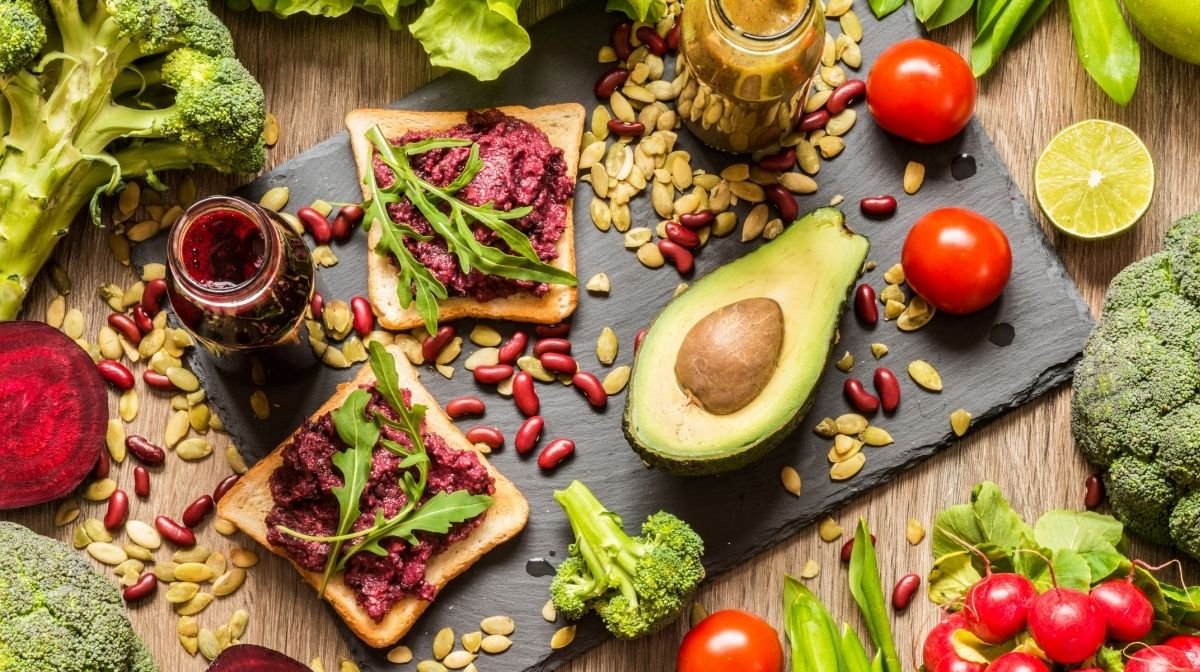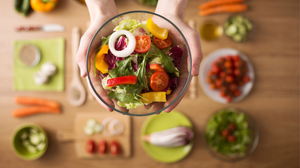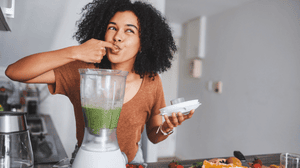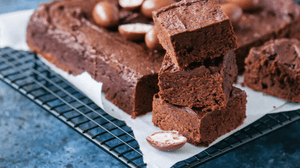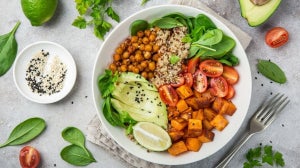
With so many vegan options out there, it’s arguably never been easier to go vegan.
According to stats from The Vegan Society, the number of vegans in the UK quadrupled between 2014 and 2019, and this is likely to increase further as more vegan options become available, and more people discover the benefits of leaving animal products behind.
However, any big lifestyle change can take some getting used to, which is why we’ve gathered these tips to help you to get started and stay on track.
Do Your Research
A vegan diet isn’t something you should just jump into headfirst - do your research before you start to make sure you know exactly what you can and can’t eat, which treats you can get away with, and which supplements you might need too.
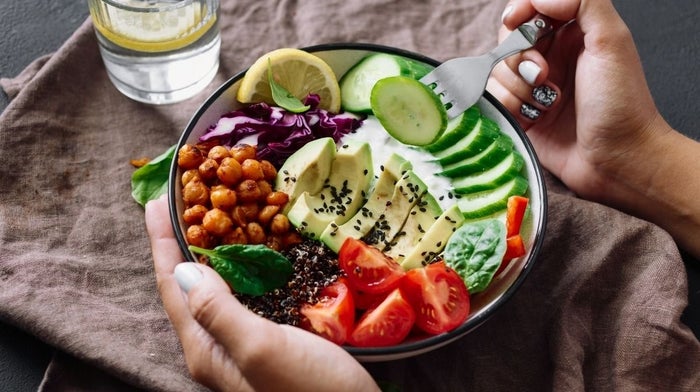
What Are the Benefits of Going Vegan?
Switching to a vegan diet could help to lower your risk of heart disease, with some people choosing to follow a vegan diet to manage their weight. Supplementing your diet with vitamins can help you to prevent any deficiencies.
There are also huge environmental benefits to more people going vegan. Meat and dairy products can have a big carbon footprint and contribute to a high level of excess water usage. If you’re no longer buying these, you’ll be doing your bit to help safeguard the planet for the future.
What Can You Eat on a Vegan Diet?
There are so many delicious foods you can enjoy on a vegan diet. We recommend stocking up your fridge with plenty of fresh fruit and veg, plant-based milk and tofu, and make sure you’ve got a good stock of pulses, grains, coconut oil, coconut milk, nuts and seeds in your kitchen cupboards.
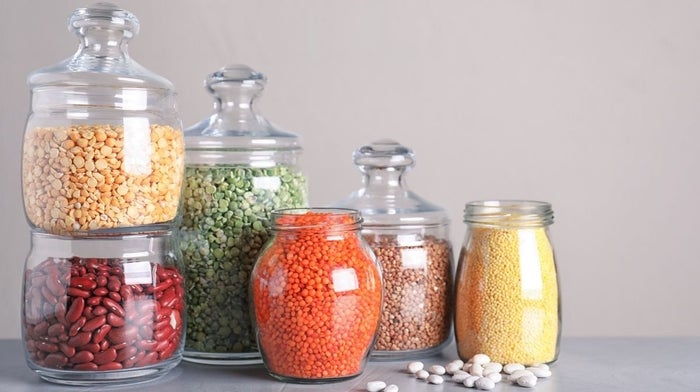
Some types of rice and pasta are vegan - always read the packet before buying - and of course you can enjoy favourites like sweet potato chips, avocado on toast and smoothie bowls as part of a plant-based diet.
What Surprise Foods Are Vegan?
Do some research to find out if your favourite treats are vegan too - you might find yourself surprised. A couple of good ones to be aware of are Marmite, Lotus Biscoff spread (*drool*), and many brands of peanut butter!
How Easy is it to Eat Out on a Vegan Diet?
It’s so much easier for vegans to eat out these days than it was just a few years ago. Most restaurants now offer vegan options, and some are 100% vegan. If you’re ever unsure, send them a message on social media or ring ahead to find out what you can eat.
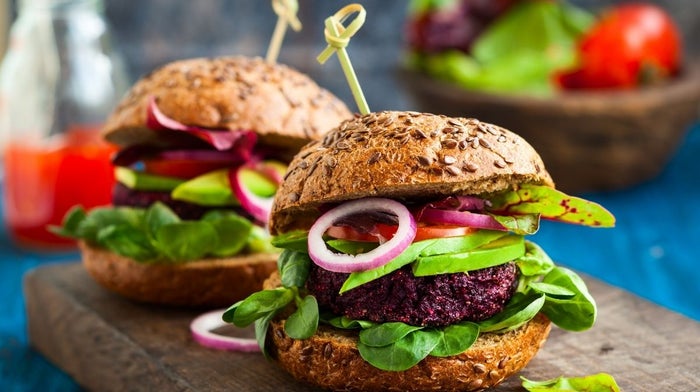
Will I Get All the Nutrients I Need on a Vegan Diet?
Many people get the majority of the protein, iron, calcium, vitamin D3 and omega-3 they need from animal or dairy products, which means people following a vegan diet can end up lacking in these essential nutrients. This is when vegan supplements can be a huge help.
Vegan Supplements
To help you to get all the nutrients you need on a vegan diet, these are some of the vegan supplements you can find at Every Health:
Vegan Protein Supplements
If you’re cutting meat, fish and dairy out of your diet, it can be a little bit harder to get all the protein your body needs to stay healthy and strong.
Garden of Life’s Raw Organic Protein Powder is 100% vegan and available in a range of delicious flavours, including Vanilla, Chocolate and Vanilla Chai.
These vegan protein powders are packed with whole food nutrients to give extra filling power and flavour to everything from vegan bakes to your morning porridge or proats - simply combine with oats and your favourite plant-based milk for a brekkie that will keep you going until lunchtime.
Vegan Omega-3 Supplements
Oily fish is one of the main sources of omega-3 essential fatty acids, and even most omega-3 supplements are made from fish oil.
However, MINAMI has a vegan omega-3 supplement that’s made using sustainably sourced algae oil instead: VeganDHA.
These softgel supplements contain the omega-3 fatty acid DHA, which is known to support normal brain function and to support the maintenance of vision. They’re also safe to use during pregnancy and breastfeeding.
Vegan Vitamin D3 Supplements
Vitamin D3 is known as ‘the sunshine vitamin’, as exposure to natural sunlight can help to boost your body’s levels. Foods like egg yolks, red meat and oily fish are also key sources of vitamin D3, so if you don’t get much exposure to the sun, and you don’t eat animal products, it can be harder to get the vitamin D3 you need.
Vitamin D plays an important role in supporting the health of your bones, teeth and immune system, and you can get vegan vitamin D3 from Garden of Life. The Organics Vegan D3 Spray and Organics Vegan D3 Chewable Supplements are both great options for increasing the levels in your body.
Vegan Iron Supplements
Iron deficiency can be a common problem for vegans and vegetarians, as red meat is one of the main sources of iron.
Garden of Life’s Organics Plant Iron & Organic Herbs formula can help you to get the iron you need to prevent the fatigue that can be associated with iron deficiency. This cranberry and lime-flavoured liquid contains iron derived from plants to provide 10mg of iron per serving, as well as vitamins B6, B12 and C.
Vegan Calcium Supplements
Calcium is another essential nutrient that typically comes from dairy products, although some green veg like kale and broccoli are also good sources.
If you’re following a vegan diet, you can get the calcium you need from Garden of Life’s Organics Plant Calcium, which features calcium from plants, alongside vegan vitamin D3.

Why Vitamin D Supplements are So Important
Explore the health benefits of taking vitamin D supplements.

